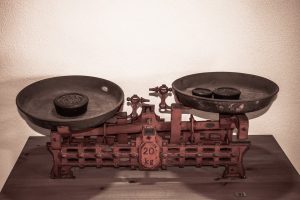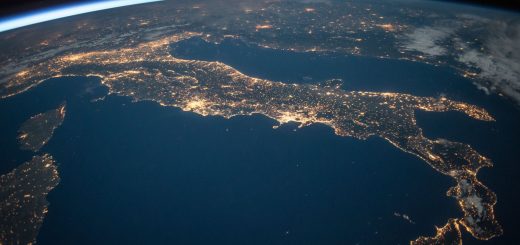But why?
In this book so far, Micah has been explaining that there are tough time ahead for the people of God, really tough times. God will not abandon them, He will bring deliverance, but not until they have suffered loss and pain and humiliation and exile.
And so the question on everyone’s lips is ‘Why? Why would God allow this? If God is a God of love, then why doesn’t He do something?’
It’s a natural enough response to suffering.
In Micah 6, the prophet Micah endeavours to answer this question. God Himself is answering the question. And He starts with how He has shown His love to His people over the years. He’s asking them to look back and remember.
My people, what have I done to you?
How have I burdened you? Answer me.
I brought you up out of Egypt
and redeemed you from the land of slavery.
I sent Moses to lead you,
also Aaron and Miriam. Micah 6:3-4
Remember how I was there for you when you needed me.
Remember how I provided leaders to guide and instruct you in my ways.
Remember how I saved you.
What have I ever done to you?
God stands accused of allowing suffering and He is presenting His case. He’s asking the people not just to look at the current situation, but to see it in the context of all of history. In the context of all that God has done and proved Himself to be over the years. He has never abandoned His people. He has given them opportunity after opportunity after opportunity to change their ways.
Look back and remember.
My people, remember
what Balak king of Moab plotted
and what Balaam son of Beor answered.
Remember your journey from Shittim to Gilgal,
that you may know the righteous acts of the Lord. Micah 6:5
What has God done for you?
And now God’s not interested in huge shows of repentance: in burnt offerings and calves and rams and rivers of oil, not even in the sacrifice of the firstborn.
No, it goes much deeper than that. It’s actually much simpler than that.
He has shown you, O mortal, what is good.
And what does the Lord require of you?
To act justly and to love mercy
and to walk humbly with your God. Micah 6:8
Act justly, love mercy, walk humbly with your God.
That’s it. That’s what God requires of His people. No fancy buildings or well-panned times of worship. No doctrinal thesis, no long words, no tick lists of dos and don’ts. It’s basically all in our interactions: our interactions with God, with ourselves, with others, with all living things, with our planet…
Simple words, but not so easy to put into practice. This is an every moment of every day kind of requirement.
We may dismiss Micah as one of those tiny, insignificant books of the Bible that are not worth delving into, but these words are lasting words. We still use these words. In the Church of England, these words appear in the weekly Prayer of Confession –
Most merciful God,
Father of our Lord Jesus Christ,
we confess that we have sinned
in thought, word and deed.
We have not loved you with our whole heart.
We have not loved our neighbours as ourselves.
In your mercy
forgive what we have been,
help us to amend what we are,
and direct what we shall be;
that we may do justly,
love mercy,
and walk humbly with you, our God.
Amen.
And as we repeat these words every week, maybe we have no idea where they have come from, maybe we’ve not even thought about what they actually mean for us. What it means to do justly, love mercy, and walk humbly with our God as we walk out through those doors and into the rest of our day, as we get up and go to work on Monday morning, as we have that tough meeting on a Wednesday afternoon and that argument on a Thursday evening…
Do justly.
Love mercy.
Walk humbly with our God.
There’s a huge amount of love and compassion, courage and strength, vulnerability and honesty, trust and obedience embedded in those phrases.
Back to that question: why?
Whatever is about to happen, the people have essentially brought suffering on themselves. God showed them the way to live in harmony and prosperity and they thought they knew better. They did it their way.
And things inevitably got out of hand.
 The chapter ends with a list of reasons why:-
The chapter ends with a list of reasons why:-
- stealing: ill-gotten treasures
- unfair trade: dishonest scales and false weights
- violence: abusing power
- lying and deception
- idolatry: turning away from God to other gods
The opposite of what God has required, in fact.
And so the people can expect to experience hunger, to never be satisfied (and as I write that, I think about the hunger in people today – physical hunger for some, but also spiritual hunger, that sense of yearning and searching for something more, something to satisfy…); and to experience want and need, to never have enough; to work and never receive anything back; to experience ruin and scorn.
God has made it clear how we should live.
What we choose to do with that information is entirely up to us.











